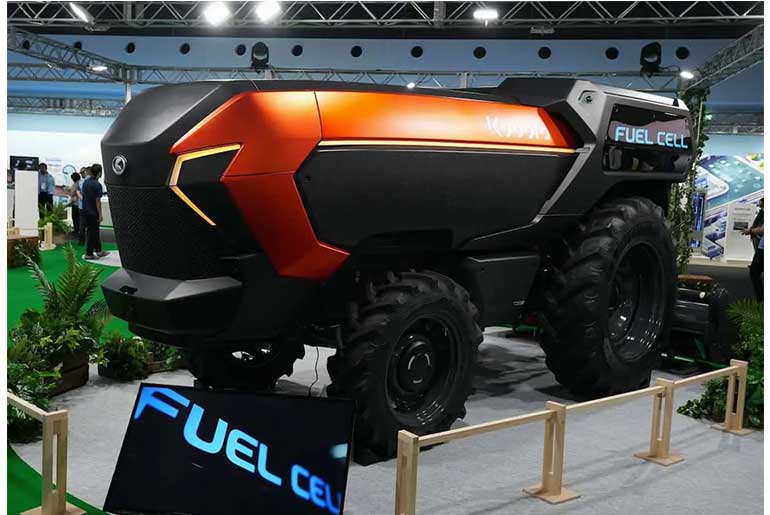Japanese multinational Kubota has unveiled the first hydrogen fuel cell-powered autonomous tractor in the world in a move towards sustainable and smart farming. The new machine was announced during the world expo 2025 in Osaka, Japan, earlier this week and will be on exhibition until Thursday.
This revolutionary tractor combines zero-emission hydrogen power with AI-enabled self-driving technology as a contribution in addressing two of the most urgent problems in the agricultural Industry today, namely, labor shortages and environmental sustainability.
Revolutionizing the Field
The new tractor model launched by Kubota is a 100-horsepower hydrogen fuel cell stack, providing farmers with almost half a day of work at a time, which is an important consideration when working long hours, which is common in the agriculture industry.
The tractor is physically 4.4 meters in length, 2.2 meters in width and 2.3 meters in height. It is completely automated and does not have a driver seat and can be operated remotely via a linked network.
The hydrogen-powered system guarantees rapid refueling, high power production and zero-emission of CO2. The device also has AI-provided cameras that can recognize individuals or field obstacles, automatic stops to ensure a better level of safety.
Reactions to the Agricultural Authority in Japan
The agricultural industry in Japan continues to experience problems because of the aging population and the reduction in agricultural labor force. Kubota innovated to offer high-tech tractor to solve the problem because it is projected to improve labor productivity and minimize environmental impacts. Its remote monitoring and control system enables farmers to run operations remotely hence enhance productivity.
An Improvement on the Past Models
This self-driven tractor is developed on a prototype of a manned hydrogen fuel cell that was announced by Kubota last year. The previous model had approximately 60 horsepower, and three hydrogen tanks were installed on top of the cab. It had four hours of low-vibration, high-vibration work after only a 10-minute fill-up and was tested in real-life activity such as plowing. It was also based on the fuel cell technology just like the one used in the Toyota Mirai.
Learning about Hydrogen Fuel Cells
The hydrogen fuel cells produce electricity by chemically reacting hydrogen and oxygen and the resultant byproducts are only water and heat. This energy system is a clean energy source that is sustainable and does not produce emissions.
Some technological developments in the field have made them more efficient and long-lasting, such as high-durability platinum catalysts, thinner membranes, and more efficient bipolar plates.
Looking Ahead
Kubota is going to start field testing the new tractor model in the near future.
“We will soon conduct a demonstration experiment and continue development towards practical application.” said Isamu Kazama, Lead Developer at Kubota.
The company claims that the hydrogen model is more powerful and has better uptime than battery-electric tractors. Should this autonomous hydrogen-powered tractor succeed in field tests, it would be a game-changer in the future of agriculture based on technology and environmental soundness.



